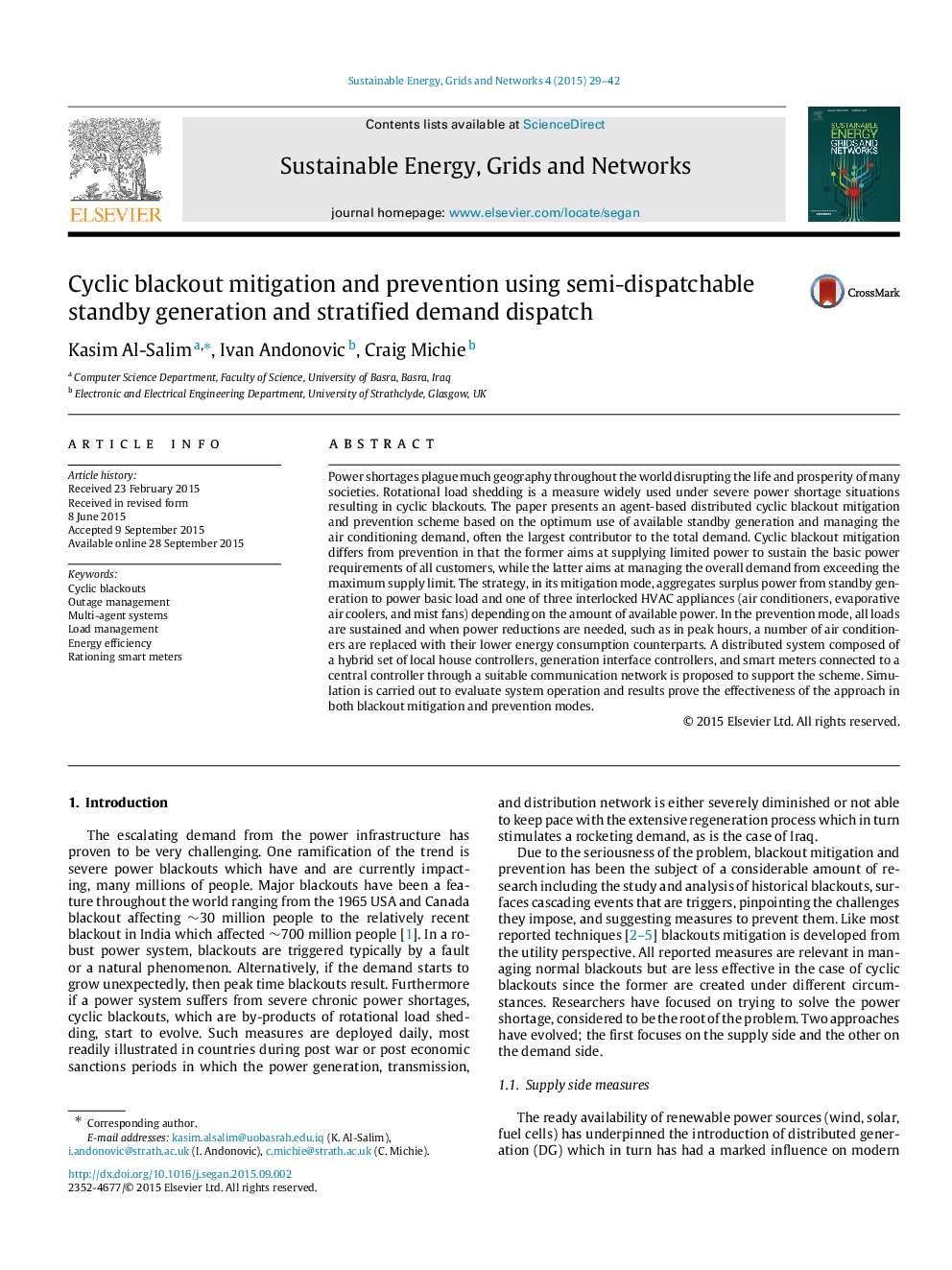| Article ID | Journal | Published Year | Pages | File Type |
|---|---|---|---|---|
| 6935599 | Sustainable Energy, Grids and Networks | 2015 | 14 Pages |
Abstract
Power shortages plague much geography throughout the world disrupting the life and prosperity of many societies. Rotational load shedding is a measure widely used under severe power shortage situations resulting in cyclic blackouts. The paper presents an agent-based distributed cyclic blackout mitigation and prevention scheme based on the optimum use of available standby generation and managing the air conditioning demand, often the largest contributor to the total demand. Cyclic blackout mitigation differs from prevention in that the former aims at supplying limited power to sustain the basic power requirements of all customers, while the latter aims at managing the overall demand from exceeding the maximum supply limit. The strategy, in its mitigation mode, aggregates surplus power from standby generation to power basic load and one of three interlocked HVAC appliances (air conditioners, evaporative air coolers, and mist fans) depending on the amount of available power. In the prevention mode, all loads are sustained and when power reductions are needed, such as in peak hours, a number of air conditioners are replaced with their lower energy consumption counterparts. A distributed system composed of a hybrid set of local house controllers, generation interface controllers, and smart meters connected to a central controller through a suitable communication network is proposed to support the scheme. Simulation is carried out to evaluate system operation and results prove the effectiveness of the approach in both blackout mitigation and prevention modes.
Related Topics
Physical Sciences and Engineering
Computer Science
Computer Science Applications
Authors
Kasim Al-Salim, Ivan Andonovic, Craig Michie,
